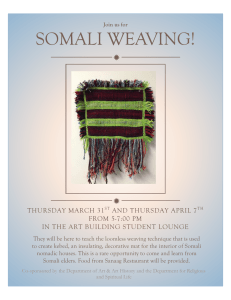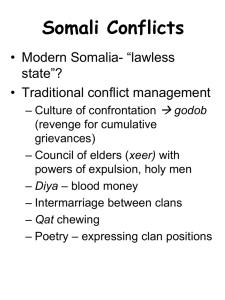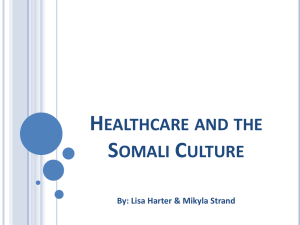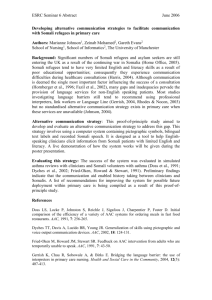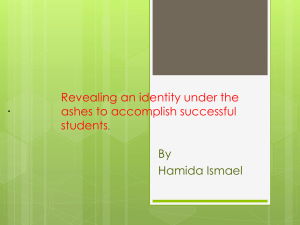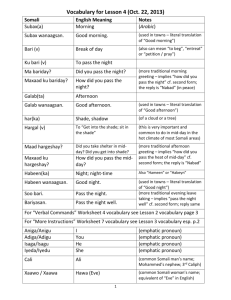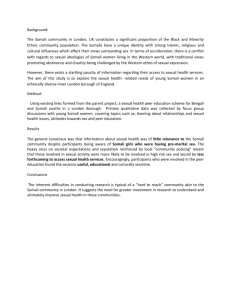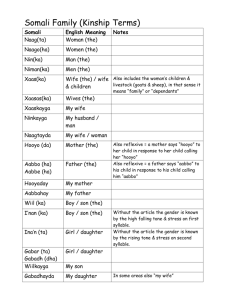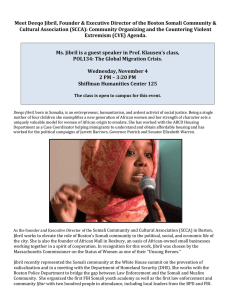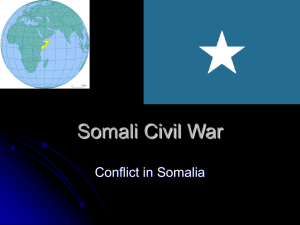Transnationalism and civic engagement- Paper for Lund
advertisement
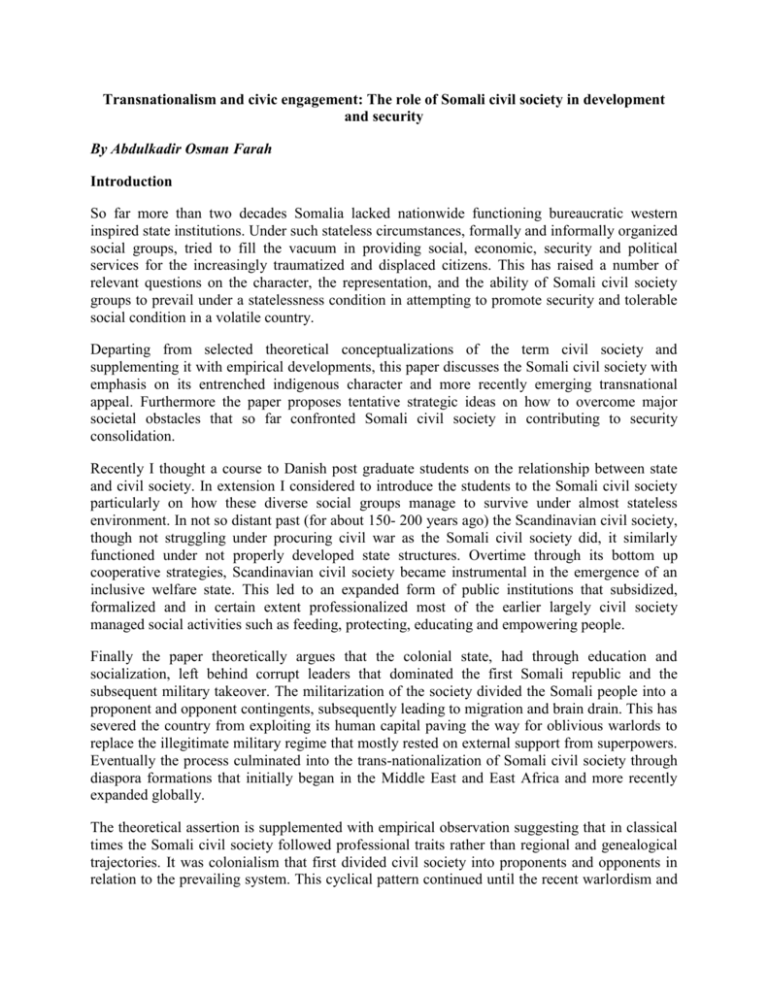
Transnationalism and civic engagement: The role of Somali civil society in development and security By Abdulkadir Osman Farah Introduction So far more than two decades Somalia lacked nationwide functioning bureaucratic western inspired state institutions. Under such stateless circumstances, formally and informally organized social groups, tried to fill the vacuum in providing social, economic, security and political services for the increasingly traumatized and displaced citizens. This has raised a number of relevant questions on the character, the representation, and the ability of Somali civil society groups to prevail under a statelessness condition in attempting to promote security and tolerable social condition in a volatile country. Departing from selected theoretical conceptualizations of the term civil society and supplementing it with empirical developments, this paper discusses the Somali civil society with emphasis on its entrenched indigenous character and more recently emerging transnational appeal. Furthermore the paper proposes tentative strategic ideas on how to overcome major societal obstacles that so far confronted Somali civil society in contributing to security consolidation. Recently I thought a course to Danish post graduate students on the relationship between state and civil society. In extension I considered to introduce the students to the Somali civil society particularly on how these diverse social groups manage to survive under almost stateless environment. In not so distant past (for about 150- 200 years ago) the Scandinavian civil society, though not struggling under procuring civil war as the Somali civil society did, it similarly functioned under not properly developed state structures. Overtime through its bottom up cooperative strategies, Scandinavian civil society became instrumental in the emergence of an inclusive welfare state. This led to an expanded form of public institutions that subsidized, formalized and in certain extent professionalized most of the earlier largely civil society managed social activities such as feeding, protecting, educating and empowering people. Finally the paper theoretically argues that the colonial state, had through education and socialization, left behind corrupt leaders that dominated the first Somali republic and the subsequent military takeover. The militarization of the society divided the Somali people into a proponent and opponent contingents, subsequently leading to migration and brain drain. This has severed the country from exploiting its human capital paving the way for oblivious warlords to replace the illegitimate military regime that mostly rested on external support from superpowers. Eventually the process culminated into the trans-nationalization of Somali civil society through diaspora formations that initially began in the Middle East and East Africa and more recently expanded globally. The theoretical assertion is supplemented with empirical observation suggesting that in classical times the Somali civil society followed professional traits rather than regional and genealogical trajectories. It was colonialism that first divided civil society into proponents and opponents in relation to the prevailing system. This cyclical pattern continued until the recent warlordism and anarchy. With the trans-nationalization of the Somali civil, through the global diaspora formations together with the emergence of a professionalized Somali civil society in the country, Somalis might balance and combine elements from the pre-colonial past and with emerging global opportunities.
